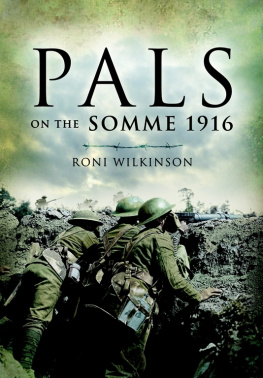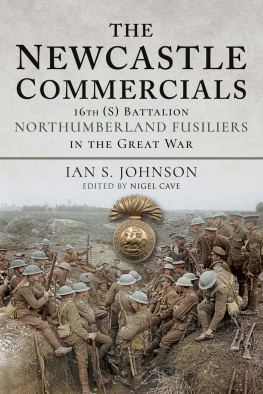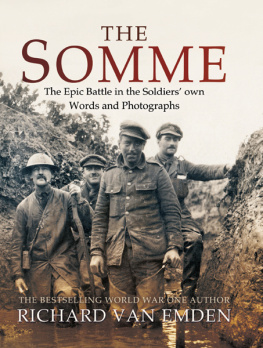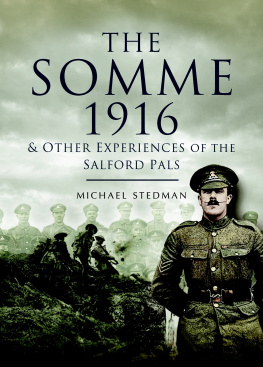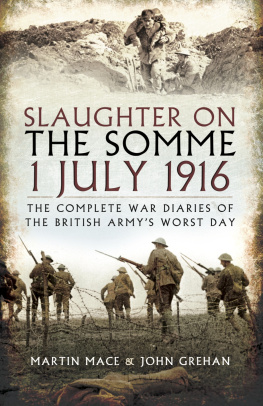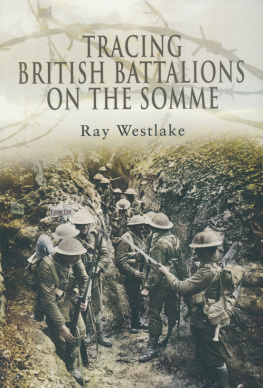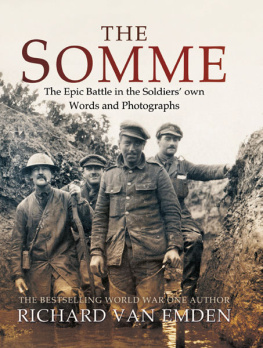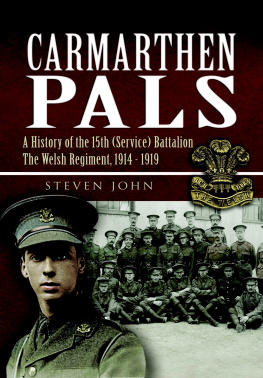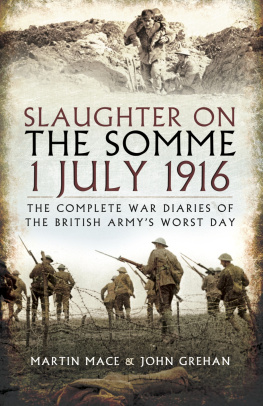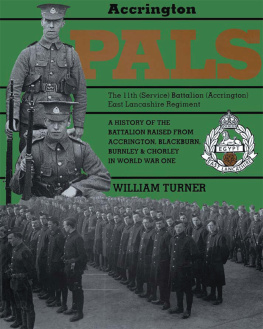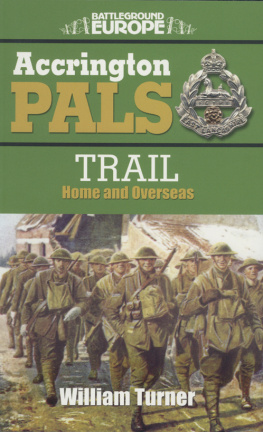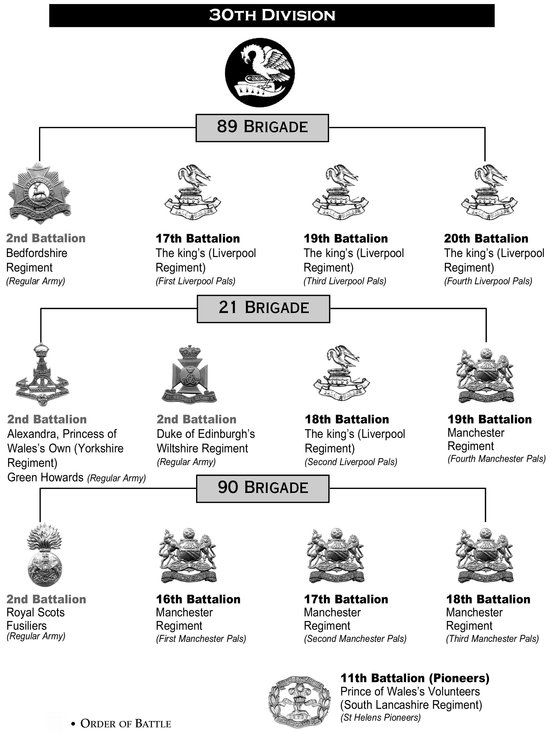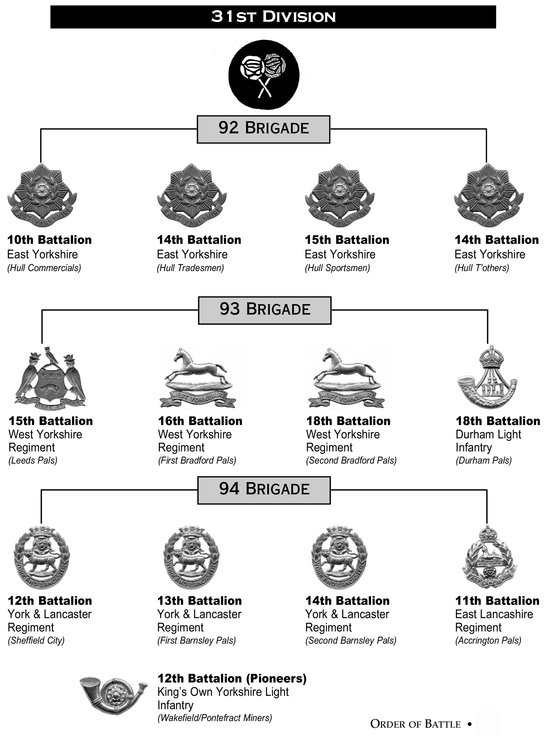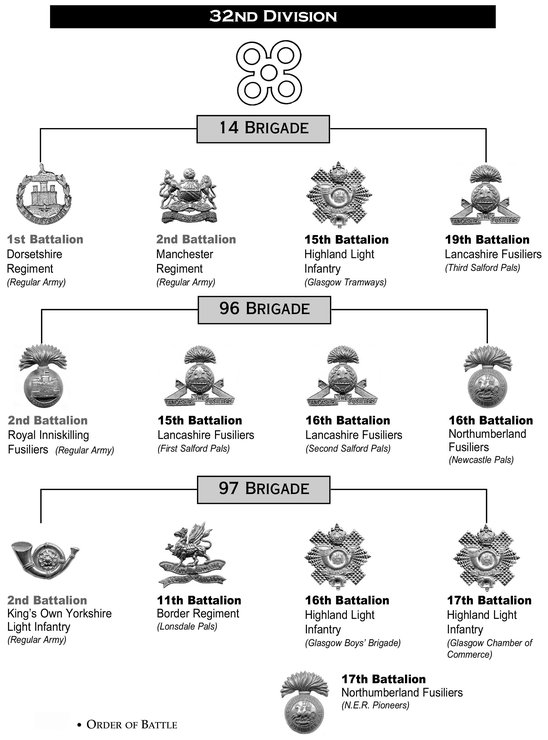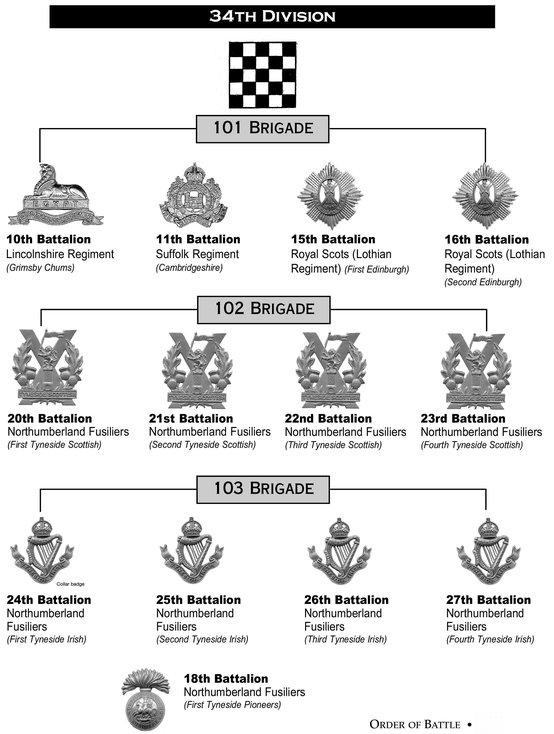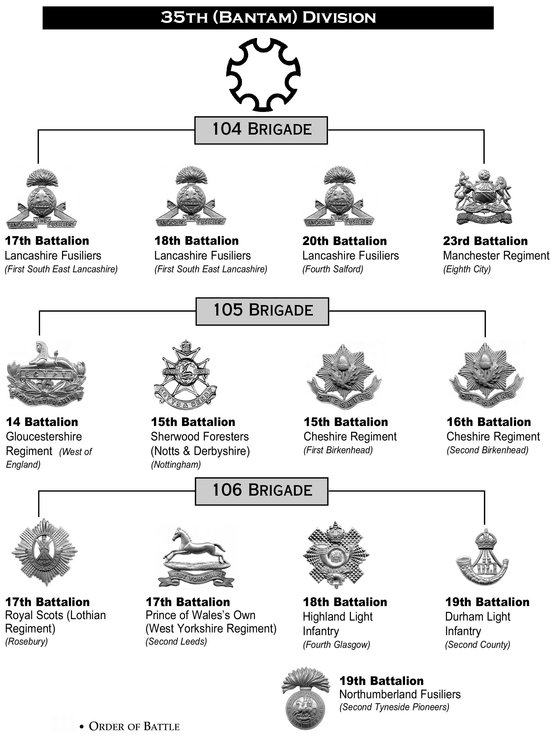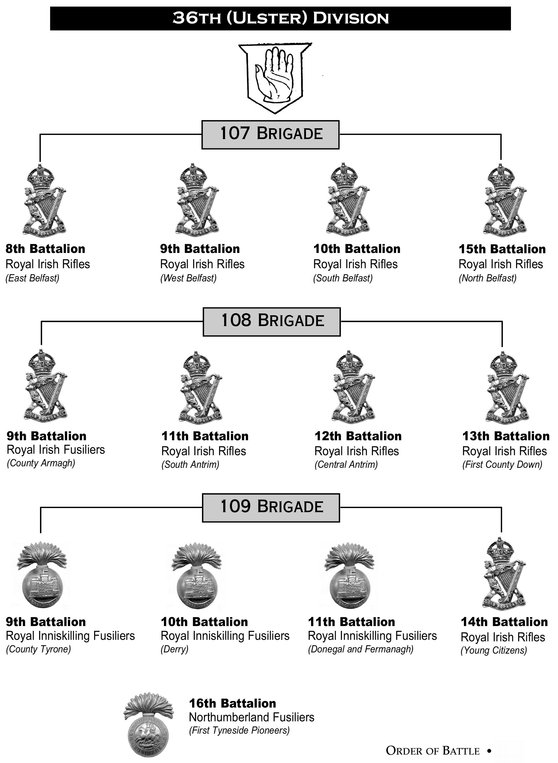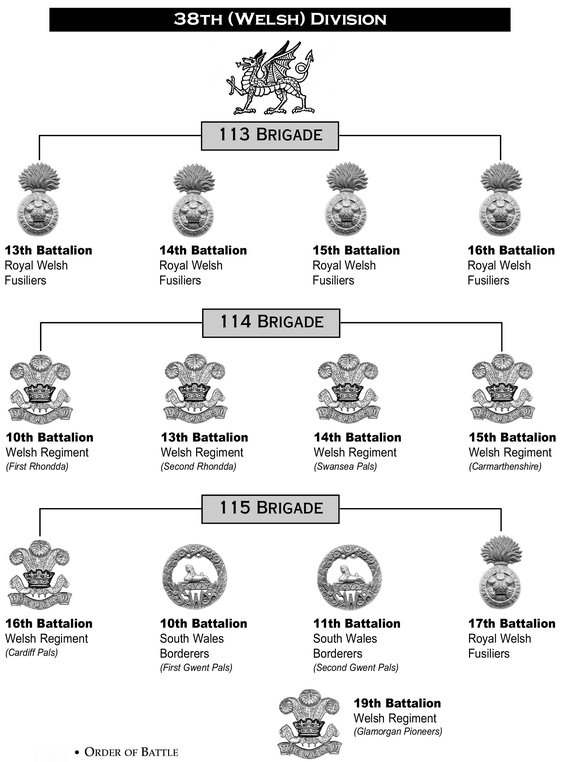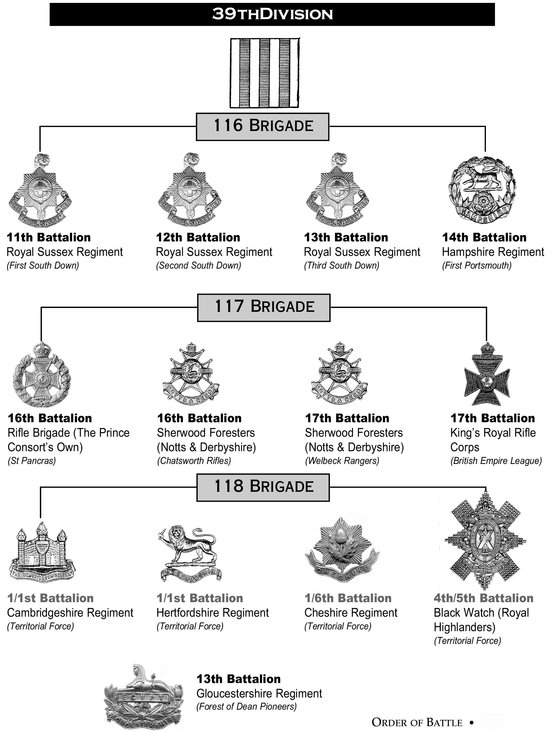BIBLIOGRAPHY
William Turner Accrington Pals , 11th (Service) Battalion (Accrington) East Lancashire Regiment, 1987, Wharncliffe Publishing Ltd
Jon Cooksey Barnsley Pals, 13th and 14th (Service) Battalions, York & Lancaster Regiment, 1986, Wharncliffe Woodmoor Investments
Terry Carter Birmingham Pals, 14th, 15th & 16th (Service) Battalions, Royal Warwickshire Regiment , 1997, Pen & Sword Books Ltd
David Raw Bradford Pals, 16th, 18th & 20th (Service) Battalions, The Prince of Wales Own West Yorkshire Regiment , 2005, Pen & Sword Books Ltd
David Bilton Hull Pals, 10th, 11th, 12th & 13th (Service) Battalions, East Yorkshire Regiment, 1999, Pen & Sword Books Ltd
Laurie Milner Leeds Pals, 15th (Service) Battalion The Prince of Wales Own West Yorkshire Regiment , 1991, Pen & Sword Books Ltd
Graham Maddocks Liverpool Pals, 17th, 18th, 19th & 20th (Service) Battalions The Kings (Liverpool Regiment), 1991, Leo Cooper
Michael Stedman Manchester Pals, 16th, 17th, 18th, 19th, 20th, 21st, 22nd & 23rd (Service) Battalions, Manchester Regiment, 1994, Leo Cooper
Michael Stedman Salford Pals, 15th 16th, 19th & 20th (Service) Battalions Lancashire Fusiliers , 1993, Leo Cooper
Ralph Gibson & Paul Oldfield Sheffield City, 12th (Service) Battalion, York & Lancaster Regiment , 1988, Wharncliffe Publishing Ltd
Bernard Lewis Swansea Pals, 14th (Service) Battalion, Welsh Regiment , 2004, Pen & Sword Books Ltd
John Sheen Tyneside Irish, 24th, 25th, 26th & 27th (Service) Battalions, Northumberland Fusiliers , 1998, Pen & Sword Books Ltd
Graham Stewart & John Sheen Tyneside Scottish, 20th, 21st, 22nd & 23rd (Service) Battalions, Northumberland Fusiliers , 1999, Pen & Sword Books Ltd
Peter Simkins Kitcheners Army, The Raising of the New Armies, 1914-16 , 1988, Manchester University Press
Martin Middlebrook Your Country Needs You , 2000, Pen & Sword Books Ltd
Ray Westlake British Battalions of the Somme, 1994, Pen & Sword Books Ltd
Chris McCarthy The Somme, The Day-by-Day Account, 1993, Arms & Armour Press
JM Winter The Experience of World War I, 1988, Grange Books PLC
Liddel Hart History of the First World War , 1997 edition, Macmillan Publishers Ltd
John Terraine Douglas Haig The Educated Soldier, 1990 edition, Leo Cooper
The Private Papers of Douglas Haig 1914-1919 , edited by Robert Blake, 1952, Eyre & Spottiswode
W Grant Grieve and Bernard Newman Tunnellers, 1936, Herbert Jenkins Ltd
Thomas Herbert, MA, The Worlds Greatest War, published 1914, Unknown
Julian Putkowski & Julian Sykes Shot at Dawn , 1989, Wharncliffe Publishing Ltd
Jack Sheldon The German Army on the Somme, 2005, Pen & Sword Books Ltd
Peter Bryant Grimsby Chums , 1990, Humberside Leisure Services
K. W. Mitchinson and I. McInnes Cotton Town Comrades, 1993, Bayonet Publications
Douglas Sutherland Tried and Valiant, 1972, Leo Cooper
Tim Saunders West Country Regiments on the Somme, 2004, Pen & Sword Books Ltd
John Bickersteth The Bickersteth Diaries 1914-1918 1995, Leo Cooper
PALS BATTALIONS ORDER OF BATTLE
The definition of a Pals/City battalion: a unit raised by a local authority or private body which undertook to organise, clothe, billet and feed the recruits. The provision of weapons was the responsibility of the Army. Official acceptance of the battalion by the War Office was when reimbursement for expenditure took place.
Privately raised formations numbered and were broken down as follows:
| Pals/City | | battalions |
| Ulster Volunteer Force | | battalions |
| TynesideScottish and Irish | | battalions |
| Public Schools | | battalions |
| Sportsmen | | battalions |
| Commercials | | battalions |
| Public Works Pioneers | | battalions |
| Empire and Empire League | | battalions |
| Boys Brigade, Church Lads Brigade | | battalions |
| Others | | battalions |
This information is based on the book, Your Country Needs You, Expansion of the British Army Infantry Divisions 1914-1918 by Martin Middlebrook.
Chapter One
THE BALKAN POWDER KEG AND DECLARATIONS OF WAR
T WO ANCIENT EMPIRES with dominion over numerous Balkan states were in terminal decline. Especially so was the case of the Ottoman Empire which had held sway over south-eastern europe for an incredible six and a half centuries. Traditionally they considered their Christian subjects as second class citizens (rayas or beasts) and for centuries had used them merely to work and pay taxes. With the arrival of the twentieth century a more enlightened attitude might have been hoped for by the subjugated peoples. Understandably, a population that had suffered for so long under the Muslim Turkish yoke, seized upon the opportunity to form fully independent states as their masters once iron grip slackened. On October 1912 the impoverished country of Montenegro declared war on Turkey and was soon seeking aid in its fight from neighbouring Serbia. Greece and Bulgaria joined the fight against the common enemy.
When war broke out, the whole of Macedonia, Albania and Epirus still formed part of the Ottoman Empire. In order to hang on to their territories the Turks were compelled, by the geographical situation, to fight three distinct campaigns simultaneously. The inevitable result of the First Balkan War was that Macedonia and Thrace were freed from Turkish domination. However, after peace was declared, Bulgaria was assailed by her former allies, Greece, Montenegro and Serbia for grabbing the lions share of the territorial spoils. Yet another conflict, The Second Balkan War, was fought in which Turkey succeeded in recapturing a toe-hold in her old territories, the town of Adrianople in Thrace, which resulted in Bulgaria having to withdraw from her conquered ground. By July 1913 Greece and Serbia were marching on the Bulgarian capitol of Sofia, and when Rumania joined in against Bulgaria, it was soon over.
Meanwhile in the northern territories the ailing Austro-Hungarian Empire had seized the opportunity to annex the formerly Ottoman province of Bosnia-Herzegovina, which it had occupied since 1878. That had brought upwards of a million Orthodox Serbs under the control of the Hapsburg dynasty. As a result of the Balkan Wars Serbia gained the Kosovo region and extended into northern and central Macedonia. Albania was made an independent state under a German prince. Inevitably there were political consequences of the wars. Bulgaria, frustrated in Macedonia, looked to Austria for support, while Serbia, which had been forced by Austria to give up its Albanian conquests, regarded the Hapsburgs with greater hostility than ever and sought closer ties with Imperial Russia.

